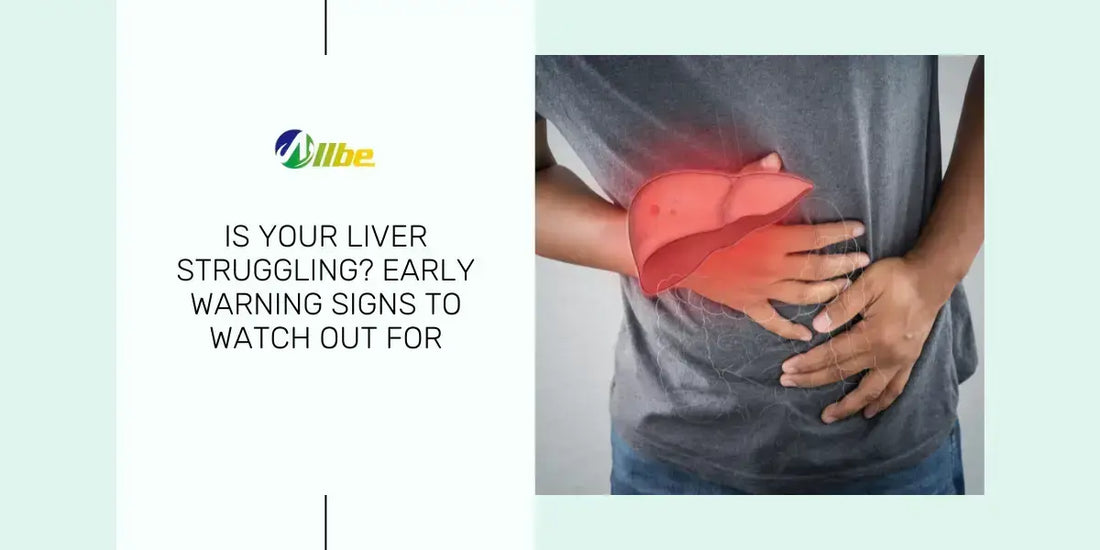
Is Your Liver Struggling? Early Warning Signs to Watch Out For
The liver is a powerful organ that performs a staggering range of essential functions, from detoxification to digestion. However, just like any other part of our body, it can become overwhelmed and start to struggle. Knowing the early signs of failing liver can make all the difference when it comes to receiving prompt and appropriate treatment. Let's break down these signs and learn how to keep our livers healthy.
10 Signs of Failing Liver

Your liver plays a crucial role in many bodily functions, from protein production and blood clotting to cholesterol, glucose, and iron metabolism. Thus, it's essential to understand signs and symptoms that might indicate your liver is dying. Here are some common signs:
Jaundice
This condition causes your skin and the whites of your eyes to turn yellow, indicating that your liver isn't processing bilirubin properly.
Abdominal pain and Swelling
Liver failure can also cause pain or discomfort in the right upper part of the abdomen, sometimes extending to the lower right chest, shoulder, or back. You may also have swelling in the abdomen and legs, ankles, or feet (edema).
Chronic fatigue
Chronic fatigue can be a sign of liver failure due to the liver's integral role in our body's energy regulation. When the liver isn't functioning correctly, it can't effectively convert nutrients from the food we eat into usable energy, which can lead to persistent tiredness.
Dark urine color
Since the liver is responsible for the production of urine, any impairment in its functionality results in the release of bilirubin in the urine, turning it dark.
Bloody, pale, or tar-colored stool
Your liver produces bile, a yellow-green fluid that assists in the digestion of fats. As bile moves through your digestive tract, it gradually changes color from green to brown. If your stool is consistently pale or clay-colored, it might mean that little to no bile is reaching your intestines.
On the other hand, if your stool is bloody, black, or tar-colored, it might indicate bleeding in your gastrointestinal tract, which could be due to severe liver disease like cirrhosis.
Loss of appetite
A change in eating habits, including not feeling hungry or experiencing rapid weight loss, can be a symptom of liver problems.
Mental confusion
A buildup of toxins in the brain—called hepatic encephalopathy—can cause sleep disturbances, confusion, or altered levels of consciousness.
Bruising easily
The liver produces proteins necessary for blood clotting. If your liver function is impaired, you might bruise or bleed more easily.
Swelling in the legs and ankles
Your liver produces albumin, a protein that prevents blood from leaking out of vessels. Damage to the liver can lower albumin levels, leading to fluid leakage and swelling.
Ascites
This is a fluid buildup in the abdominal cavity, often due to severe liver disease.
How Do I Make My Liver Healthy Again?
Maintaining liver health is crucial as it plays a central role in all metabolic processes in your body. Here are some strategies to help keep your liver healthy:
- Maintaining a healthy weight: being overweight makes you prone to non-alcoholic fatty liver disease (NAFLD) due to the fat deposition within the liver. Therefore, maintaining a healthy weight can prevent liver damage.
- Get a balanced diet: a well-balanced diet rich in fiber, minerals, vitamins, and polyunsaturated fatty acids not only prevents liver damage but also adds to the efficiency of liver functionality.
- Exercise regularly: exposing yourself to regular low-mode exercise burns the triglyceride within the liver, thus improving liver health.
- Get Vaccinated: If you are diagnosed with hepatitis A and Hepatitis B, get your vaccination done asap to avoid further liver damage.
- Control Your Cholesterol Levels: High levels of cholesterol can lead to fatty liver disease. Maintaining a healthy level of cholesterol can help to keep your liver in good condition.
- Avoid Illicit Substances: Illicit substances can significantly damage the liver and cause liver failure. It's important to avoid all illicit substances to maintain liver health.
- Avoid or Limit Alcohol: Drinking alcohol in moderation, or not at all, is key to protecting your liver. Excessive drinking can cause various liver complications, including alcoholic hepatitis or cirrhosis.
How Do Liver Supplements Support Liver Health?
Multivitamin supplements source the body with all essential nutrients that prevent liver damage, promote detoxification, and stimulate liver function. Milk-thistle supplements are one of the most commonly used supplements for liver health. It contains a mixture of flavonolignans called silymarin, which are thought to have antioxidant, antiviral, and anti-inflammatory properties. Silymarin is also believed to promote liver cell regeneration and protect the liver cells from toxins.
Other most common ingredients of liver supplements include:
- Turmeric
- Dandelion extract
- Artichoke extract
- N-Acetylcysteine
LiverCan-an ultimate Liver Support
If you are looking for the best supplement for the liver in Canada, LiverCan is your ideal choice. It promotes healthy liver function and enhances detoxification. It also eid in the production and flow of bile which significantly improves the quality of digestion and nutrient absorption. It sources the body with Milk thistle and dandelion extract along with silymarin.
Conclusion
Your liver plays a critical role in maintaining your body's overall health. It is essential to pay attention to the signs that your liver may be struggling with, such as fatigue, jaundice, dark urine, easy bruising, swelling in the legs and abdomen, and mental confusion. While some of these symptoms might be subtle or easily confused with other health conditions, persistent or severe symptoms require immediate medical attention.
Regular check-ups with your healthcare provider can also help detect potential liver issues early, increasing the chance of effective treatment and a positive outcome.
